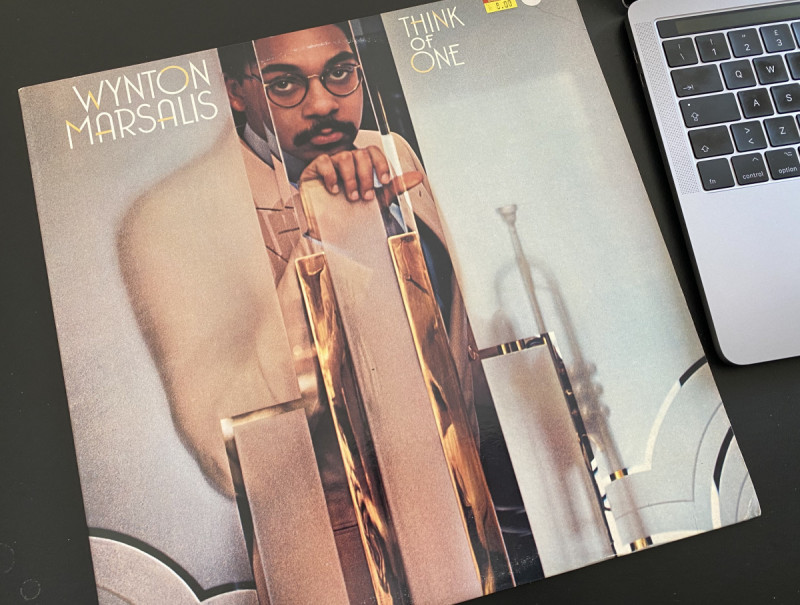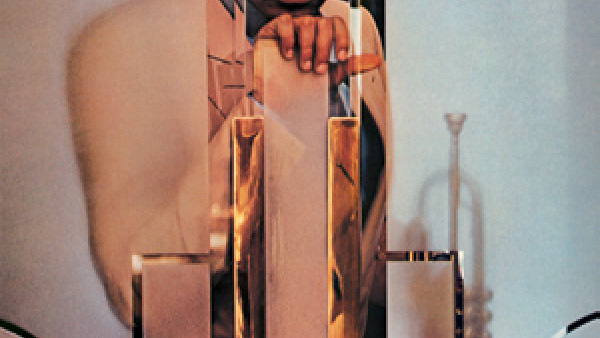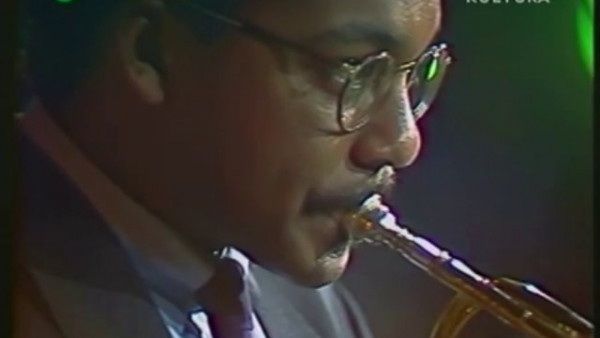Think Of One: I remember that time like it was yesterday, although it was almost 40 years ago

I remember that time like it was yesterday, although it was almost 40 years ago. As a band we were trying to come out with our own way of playing without forsaking the substance of the fundamentals of actual jazz music that we could understand at that time. By the 70’s, the re-education on the substance of jazz that had started in the 50’s was largely in place and although we (musicians) mainly played funk or rock, we called it jazz. I can remember a band playing a Parliament Funkadelic medley at a jazz festival!
Even in high school, I always wondered whether or not it was possible to actually learn how to play jazz like the people on all those great recordings, or the greats who were still around, like Clark Terry, Betty Carter and Woody Shaw etc. It was not a social, political or philosophical thought because my father didn’t talk about popular music in those terms. He encouraged us (and all of his students) to get any and all experience and he told me to definitely play in our funk band for the experience and to know what was actually going on. It was a lot of fun, a whole lot but the differences were, and still are, obvious to me; I was just always wondering about the possibility of trying to learn how to actually play. It was a basic observation from experience but uninformed by substance. At that time, we had no idea how deep jazz actually was because anything before bebop didn’t even exist to us. For many of us, teenaged musicians in the 70’s, New Orleans jazz music (not second lining) was perceived as a relic for tourists. We just didn’t know. I had less of an excuse because my father was telling me, but willful and proud ignorance survives all evidence, and so mine did.
Our group with Tain and Kenny had been playing together for almost two years when we recorded Think of One. I had just turned 20 when we first went on tour, and Kenny later told me he thought, “Maybe we will do this for this weekend and that will be that.” Billy Banks was our road manager, and he knew more about the music than any of us. He was teaching and talking about the music all the time and we were like a family. There was a lot of love and dysfunction, and we didn’t know what would come of it all.
Everybody had a different personality. “Tain” was very funny and kept us laughing. He was good at imitating people’s voices but was also a master of playing complex rhythms over harmonic forms. Even though we were all young and teasing and acting silly all the time, we were serious about trying to learn how to actually play. At that time, playing jazz gigs that didn’t feature a backbeat was novel for young people. And no one, except me, was tired of the backbeat. And the cats in the band really didn’t care what I was tired of. They liked what they liked.
The first gig was in Philly. We didn’t really sell tickets so I thought it would be the same struggle I had seen my father go through for years trying to play. I remember on that initial swing, going to Madison, Wisconsin, and a lot of college students came out. We thought……maybe…?
By some miracle (to us, because friends our age weren’t into this type of music) enough people across the spectrum of listeners actually came out and wanted to support it. They came out and kept coming out. It still remains one of the biggest shocks to me and one for which I remain eternally grateful. We were trying to get a little bit better. And everyone had a lot of musical talent. Kenny was our oldest member and our best soloist. He was the most knowledgeable theoretically and very sophisticated and earthy, rhythmically. But Branford and Tain both had all kinds of unusually advanced and organic talents and skills.
On Think of One, we were just trying to learn different concepts and play. “Think of One” I arranged trying to use space and stop-time and different things that Monk was implying in his music.
Kenny’s song, “Fuchsia”, was an interesting song and we were happy to have a composition he wrote. Everyone was encouraged to write stuff and his tune was challenging. Ray Drummond brought a different compositional voice and approach that was more informed of the tradition than we were at that time and he was dedicated and determined to swing. His nickname was Bulldog.
We were trying to find a way to use the signature 4/4 swing of the music and a way to play better in time. On “Knozz-Moe-King” we used cues and changes to play different shapes. It was also a blessing for me to play with Branford, because we knew each other’s playing so well and had developed all kinds of internal dialogues from childhood.
Phil Bowler was dedicated and brought a lot of seriousness and integrity to the bass voice of the band. He had a beautiful spirit and approach and played with a lot of gratitude and soul.
There was a huge snowstorm the day of the actual recording session. I think it was the day we finished. “My Ideal” was a tune that pianist Walter Davis showed me. He taught me a lot of music. “Later” was a blues that we used as a theme song.
“The Bell Ring” was based on a Pablo Neruda poem I liked, and that song was the first counterpoint I was writing in trying to become more sophisticated with my compositions. I remember Walter Davis liked it and said “Man, do more of that.” That was an important affirmation for me. I was a pall bearer at Walter’s funeral and remembered just the sorrow of carrying the weight of his body and thought of how animated he would be talking about music and his love telling stories about Monk and the cats and of showing me how things worked theoretically.
Stanley Crouch was like my big brother or a fiery misunderstood uncle. I was blessed to have had so many meaningful conversations with him, and to learn how to further connect jazz to the world of art and politics, and all the many different things. He was able to draw out these connections because he had an encyclopedic interest and could still recite the entire Signifying Monkey. He was a genius and one of the most unique people you could ever know. He wrote the notes for it. I would laugh because I’m the notes he was complimentary but in real life he was always critiquing. I said why don’t you put that in those notes, he said, “Man, I don’t need to let everybody know how sad you truly are…on YOUR recording.” We laughed.
Having studied with the great Dr. Bert Braud in New Orleans all through high school, I prided myself on theoretical knowledge. Kenny Kirkland knew all kinds of theory and harmony. He was a theory major at the Manhattan School of Music, and he used to say: “Knowing harmony and playing harmony are two different things.”
Or, as my friend Steve Coleman used to say: “Talking about music is not playing it. One can be great at talking about music but can be unable to play at all.”
Wynton


